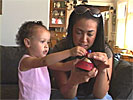SEL Parent Workshops: How Group Dynamics Enhance Problem-Solving and Parenting Skills

Check out our blog for social-emotional learning articles, news, and more!
 Background: The incidence of conduct disorder in young children is 10% in the general population and 37% among fostered children. Up to 40% of untreated children diagnosed with conduct disorder develop problems later in life including drug misuse, criminal and violent behaviour. There are more than 80 000 looked after children in the UK, with 5000 in Wales. Challenging child
Background: The incidence of conduct disorder in young children is 10% in the general population and 37% among fostered children. Up to 40% of untreated children diagnosed with conduct disorder develop problems later in life including drug misuse, criminal and violent behaviour. There are more than 80 000 looked after children in the UK, with 5000 in Wales. Challenging child
behaviour is the main reason for placement breakdown and has huge cost implications as challenging children cost up to 10 times more in service use than children without conduct disorder. The Incredible Years (IY) evidence-based parenting programme is an effective, low cost solution in improving child behaviour and social competence in ‘conventional’ families and thus
has the potential to support foster carers in managing difficult behaviours.
Our main aims were to establish:
• The feasibility of delivery and the effectiveness of the IY parenting programme in supporting carers in managing difficult behaviour in looked after children.
• Service use costs for foster carers and looked after child.
Methods: This was a 12-month trial platform study with 46 foster carers in three authorities in Wales. Carers were allocated 2:1 intervention to waiting-list control. Validated measures were used to assess ‘parenting’ competency, carers’ depression levels, child behaviour and service use. Measures were administered at baseline and 6-month follow-up. Intervention carers received the programme between baseline and follow-up.
Results: Analyses showed a significant reduction in child problem behaviour and improvement incarers’ depression levels for intervention families at follow-up, compared with control.Unexpectedly, there was a significant improvement in control carers’ self-reported ‘parenting’strategies. Special education was the greatest service cost for looked after children.
Conclusions Initial foster carer training could incorporate the IY programme to support carers in establishing positive relationships and managing difficult child behaviour. Programme participation may lead to reduced service use and improved placement stability.





